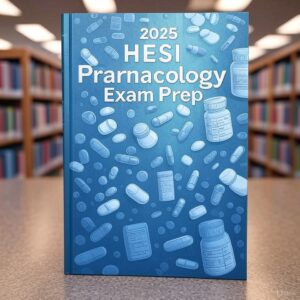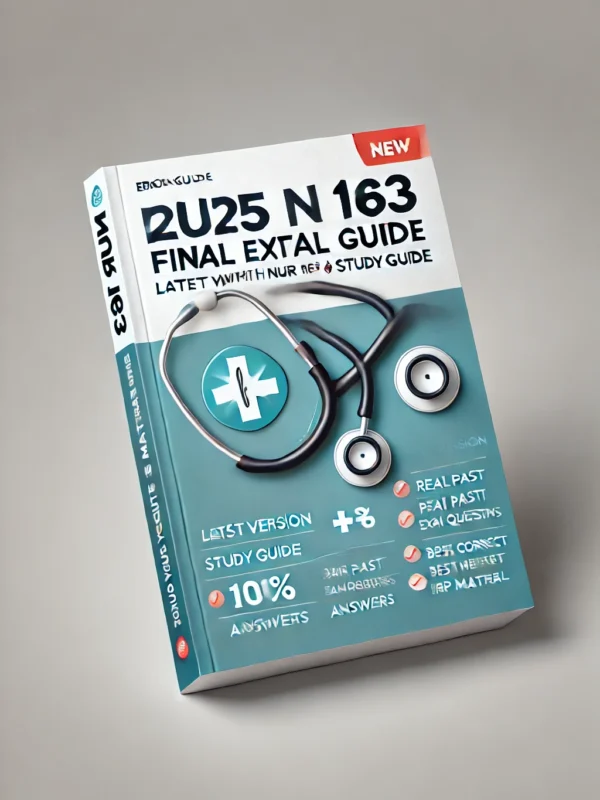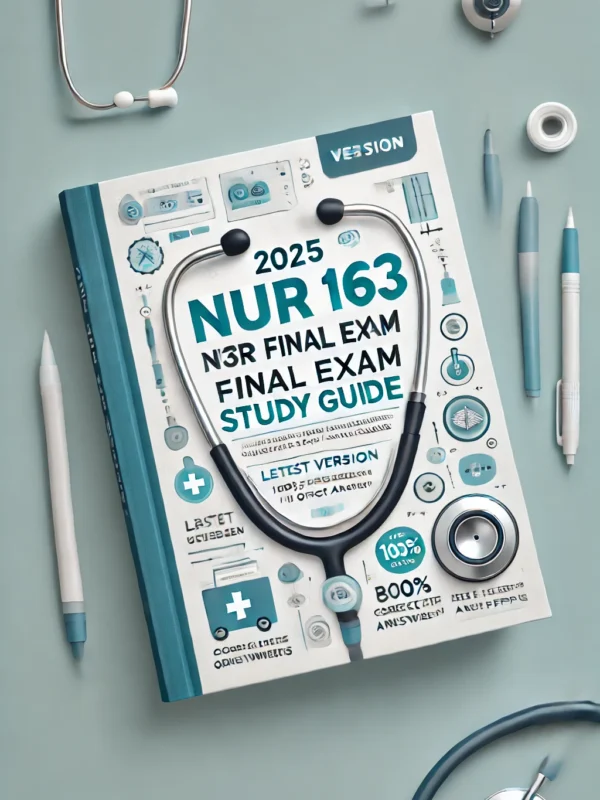-
Must-Know Medications: Focuses on high-yield drugs essential for the HESI exam.
-
Expert Questions: Challenging practice questions to test your pharmacology knowledge.
-
Detailed Explanations: In-depth answers to clarify complex concepts and drug mechanisms.
-
Nursing Student Focused: Tailored to help you excel in pharmacology for the HESI 2025.
-
Updated for 2025: Aligned with the latest HESI Pharmacology exam standards.
Preview
A nurse is caring for a client with hyperparathyroidism and notes that the client’s serum
calcium level is 13 mg/dL. Which medication should the nurse prepare to administer as
prescribed to the client?1. Calcium chloride
2. Calcium gluconate
3. Calcitonin (Miacalcin)
4. Large doses of vitamin D – – correct ans- -3. Calcitonin (Miacalcin)
Rationale:
The normal serum calcium level is 8.6 to 10.0 mg/dL. This client is experiencing
hypercalcemia. Calcium gluconate and calcium chloride are medications used for the
treatment of tetany, which occurs as a result of acute hypocalcemia. In hypercalcemia,
large doses of vitamin D need to be avoided. Calcitonin, a thyroid hormone, decreases
the plasma calcium level by inhibiting bone resorption and lowering the serum calcium
concentration.
Oral iron supplements are prescribed for a 6-year-old child with iron deficiency anemia.
The nurse instructs the mother to administer the iron with which best food item?
1. Milk
2. Water
3. Apple juice
4. Orange juice – – correct ans- -4. Orange juice
Rationale:
Vitamin C increases the absorption of iron by the body. The mother should be instructed
to administer the medication with a citrus fruit or a juice that is high in vitamin C. Milk
may affect absorption of the iron. Water will not assist in absorption. Orange juice
contains a greater amount of vitamin C than apple juice.
Salicylic acid is prescribed for a client with a diagnosis of psoriasis. The nurse monitors
the client, knowing that which of the following would indicate the presence of systemic
toxicity from this medication?
1. Tinnitus
2. Diarrhea
3. Constipation
4. Decreased Respirations – – correct ans- -1. Tinnitus
Rationale:
Salicylic acid is absorbed readily through the skin, and systemic toxicity (salicylism) can
result. Symptoms include tinnitus, dizziness, hyperpnea, and psychological
disturbances. Constipation and diarrhea are not associated with salicylism.












Reviews
There are no reviews yet.